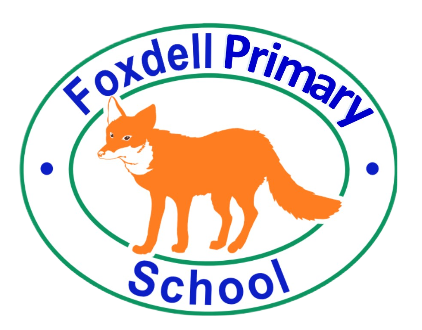Computing
A high-quality computing education equips pupils to use computational thinking and creativity to understand and change the world. Computing has deep links with mathematics, science, and design and technology, and provides insights into both natural and artificial systems. The core of computing is computer science, in which pupils are taught the principles of information and computation, how digital systems work, and how to put this knowledge to use through programming. Building on this knowledge and understanding, pupils are equipped to use information technology to create programs, systems and a range of content. Computing also ensures that pupils become digitally literate – able to use, and express themselves and develop their ideas through, information and communication technology – at a level suitable for the future workplace and as active participants in a digital world. (National Curriculum 2014)
At Foxdell Primary School we have a clear and simple vision: the children should be online safe, online-inspired and online-confident. As a school, we are committed to equipping our learners with computational thinking skills and creativity to understand and change the world. We aim to ensure that pupils become digitally literate, able to use and express themselves and develop their ideas through computing technology at a level suitable for the future workplace and as active participants in an increasingly digital world.
Computing is an integral part of our everyday life and will play an immeasurable part in our children’s futures. We will provide all of our children with the skills, creativity and enthusiasm to live and thrive in a world increasingly dependent on computing. As computing technology underpins today’s modern lifestyle it is essential that all pupils gain the confidence and ability that they need in this subject, to prepare them for the challenge of a rapidly developing and changing technological world.
The children have many opportunities to use technology. While all the basics IT skills are covered, for example making a simple Word document or using Paint programs, the children’s experience soon develops and so the children are beginning create presentations using videos and photos as well as short digital story books and animation.
The use of Computing also enhances and extends our children’s learning across the whole curriculum whilst contributing to motivation and the development of social skills. Each year group has access to Google Chromebooks, iPads and laptops which can be used to support learning and enabling computer access at a variety of levels, for small group work, independent access or through whole class teaching sessions. There is a wide range of software suitable for young children, which aims to develop a broad range of computing skills and to support learning in other areas of the curriculum. Children are also given opportunities to use various forms of hardware to support learning, such as digital cameras, sound recorders and programmable toys. Every classroom is equipped with the most up to date interactive screens and sound system, designed to encourage collaboration, streamline resources and make day-to-day teaching more engaging.
CURRICULUM
Computing is taught as a subject in its own right and skills learned are used across the wider curriculum. All year groups have access to Chromebooks and iPads for classroom use. Pupils spend one hour lesson per week following a structured and progressive programme that uses resources from Teach Computing (https://teachcomputing.org/) supplemented by lessons from Purple Mash (https://www.2simple.com/free-stuff/computing-scheme/), Google Applied Digital Skills (https://applieddigitalskills.withgoogle.com/s/en-uk/home) and ScratchED (https://scratched.gse.harvard.edu/) . Learners are encouraged to develop a wide range of skills including content creation, data handling and collaborative working using a range of different devices. All learners have Google for Education accounts and are taught to use Docs, Slides, Forms, Maps and Sites to support their learning in Computing and the wider curriculum. Learners also have Purple Mash, Mathletics and Times Tables Rock Stars accounts and are able to access a wide range of resources to support their learning in all lessons.
ONLINE SAFETY
Online Safety is an important aspect of all work involving technology and pupils are regularly taught how to stay safe online and what to do when they have concerns. Regular online safety lessons are delivered using resources from Project Evolve (https://projectevolve.co.uk/ ). All learners have access to the Pupil Friendly version of our Safeguarding Policy which details provisions in place to support them with concerns when online. All access to the internet is filtered using RM Safetynet to ensure that pupils stay safe and secure when working in school. In addition, SENSO is used to monitor pupils use of technology in all lessons and to allow teachers a suite of tools to manage their use of technology in the classroom.
By the end of each academic year, the majority of pupils have learnt to use and manipulate computing skills, hardware and software appropriate for their age and stage of education. Pupils’ understanding of computing progresses quickly through each year and pupils gain a confident understanding of how to keep safe when using the internet, digital devices and software. The teaching and learning of Computing therefore equips children for the next steps of their digital education and continues to enhance learning across the curriculum.
